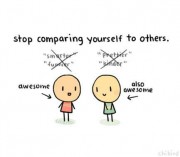 One thing I’ve definitely learned in life: Whether it’s a bullying situation, getting along with co-workers, friends or family members, ASSERTIVE COMMUNICATION is an essential skill!
One thing I’ve definitely learned in life: Whether it’s a bullying situation, getting along with co-workers, friends or family members, ASSERTIVE COMMUNICATION is an essential skill!
Following are four types of communication: Which one do you use most frequently
1. Passive
Avoid saying what you think, feel, want, or believe. Avoid confrontation at all costs.
Examples:
You really want to go to the movies tonight but your partner wants to go to the races. You say it doesn’t matter but all night you feel slighted because you always do what he wants.
Your co-worker divides your shared workload and it seems you always get the most difficult accounts. Even though you feel resentful, you tell yourself it doesn’t matter and remain quiet and do the work.
You’re upset that she keeps ignoring you and calling you names, but you don’t want to make any waves so you just keep quiet.
By not standing up for yourself, you feel weakened, you begin to feel like a victim and harbor resentment.
2. Aggressive
Saying what you think, feel, want or believe in ways that are hurtful and disrespectful to others (belittling, degrading, threatening, blaming, yelling).
Examples:
“Put your #$* socks in the #$* wash. You are such a slob. The house looks like a pigsty, because of you.”
“You’re so stupid-you can’t you do anything right?”
“Are you crazy, you don’t even know what you’re talking about! Try to get it right next time!”
When you handle your relationships with aggression, you may feel that it works in the short term, but; ultimately, you push people away and they may fear you but they don’t respect you!
3. Passive/Aggressive
This is aggression but instead of being verbal, you are aggressive with your actions in a sneaky, underhanded way.
Examples:
Sondra is upset about an unwanted job her boss gave her, frustrated because she got it versus her co-workers. She doesn’t say a word to her boss, but each morning she makes his coffee purposely strong knowing that he doesn’t like it that way.
Jen’s roommate made her favorite food for dinner tonight. Jen thinks, “After the way she acted towards me, I’m not going to eat, no matter how hungry I am.”
Katy is upset with a friend. She thinks, “I’ll show her,” and doesn’t talk to her all day plus she gets the other girls in the class to ignore her too.
People who are passive aggressive can be very difficult to get along with.
4. Assertiveness
Saying what you think, feel, want, or believe in a respectful, straightforward manner.
Examples:
“I feel it’s unfair that you get to decide what we do the majority of the time. I really need you to do some things that I’d like to do.”
“I feel really hurt when you talk that way; I need you to be more respectful to me!”
“I feel irritated when I get the most difficult accounts; I need you to divide the work up in a way that is more equal.”
Sondra tells her friend, “I feel hurt when you decide to just ignore me. I need you to let me know why you’re so upset and angry.”
The ultimate goal is to use ASSERTIVE COMMUNICATION in your relationships.
You tell the person how you feel when they do what they are doing or saying and then you tell them what you would like to happen.
Assertive communication starts out with an “I” statement, and ends with telling the other person what you would like to happen.
I feel______________________________________________
When _____________________________________________
What I would like is __________________________________
For people who have developed habits of being passive or aggressive, this type of communication can seem awkward and uncomfortable. But each time you practice, it will become easier.
Tying your shoes is easy because you’ve done it a thousand times. The same is true of learning to use most new skills.
Remember, we often resist that which is uncomfortable, but if we want SOMETHING TO CHANGE, WE NEED TO MAKE CHANGES IN OURSELVES!
So today, begin to practice using ASSERTIVE COMMUNICATION SKILLS. The benefits will be worth it!



